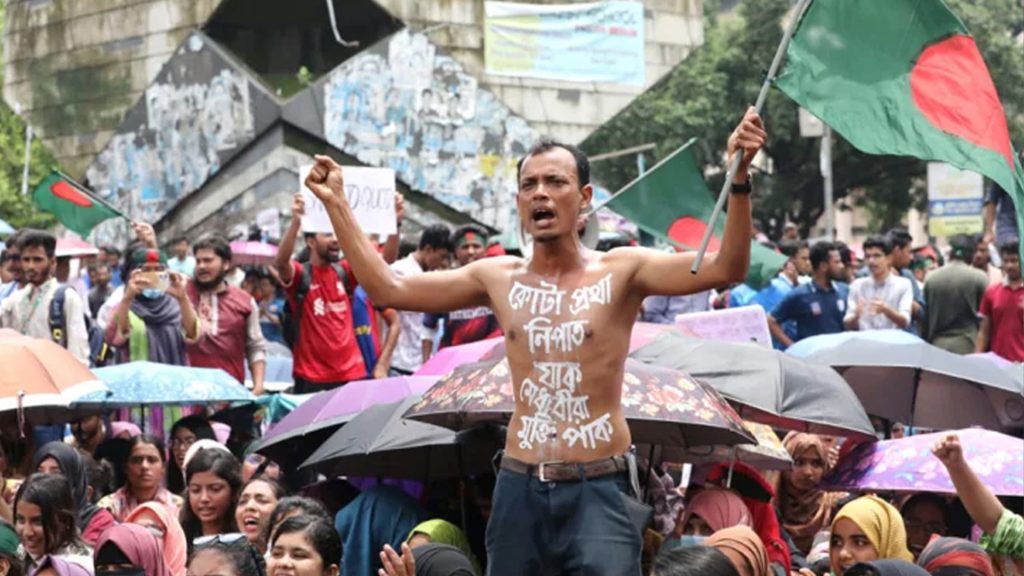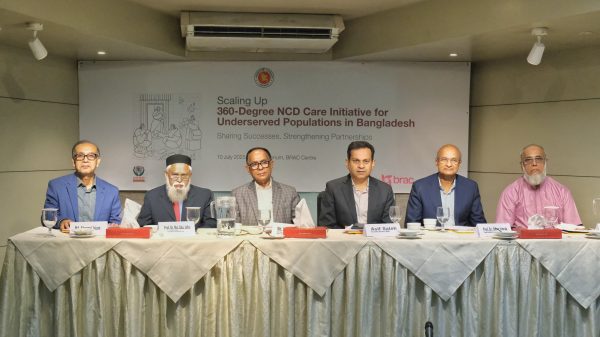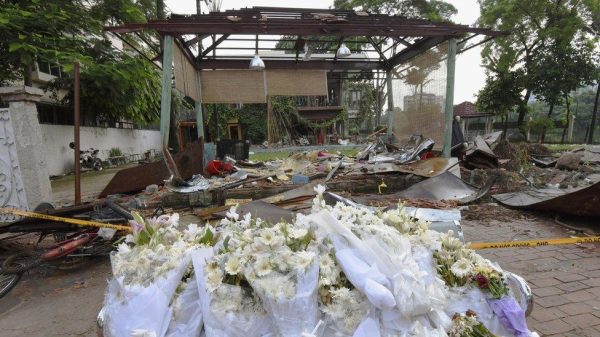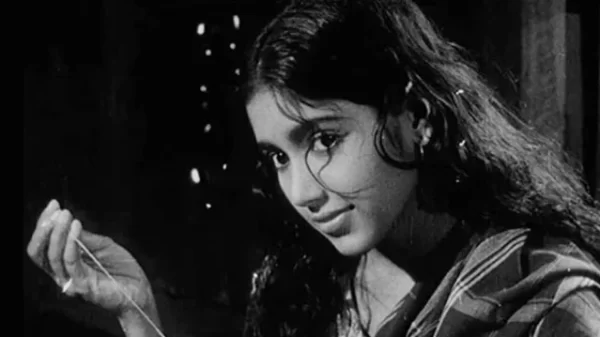Unmet Promises: The Clash of Generations in Bangladesh’s Politics

- Update Time : Sunday, August 4, 2024

Swadesh Roy
In any state or society, something eventually becomes outdated. This is the natural course of a state or society. Accepting this situation and searching for the reasons behind such events is very necessary. The recent student uprising in Bangladesh is the reality, and through this event, it has also become evident that the country’s overall politics is clinging to old times.
Some may object to the term “overall politics” and say that only the bankruptcy of the ruling party has been exposed, so why call it overall politics? Since the ruling party is visible and they are running the government, their bankruptcy has been more evident, proving that they have truly become bankrupt as a political party. However, the opposition politicians still need to present future-oriented politics to the country’s people in tune with the current generation and time. They have not been able to provide any proof that they are forward-looking. Instead, where the students were non-violent, politics has brought violence to the state and society. Everyone is still relying on power.

Therefore, the country’s politics has failed or is on the verge of failing without dividing it into the ruling and opposition parties. Politics in a country fails for various reasons. So whenever the politics of a country fails, it is the duty of the state or society to let everyone freely search for the reasons. If independent opinions come from various corners of society, finding a line for the future through them becomes easier.
For example, the student movement abolished the quota or reservation system in jobs twice since 2018. Many questions have arisen after the abolition of this quota or reservation system. Women will fall behind because students from lower-tier districts will fall behind. Government jobs will again fall into the hands of children from wealthy families. These statements are broadly true but not entirely true. It is true that since the students from wealthy families study in good schools in Dhaka, it is natural that they will do well in government job exams. But at the same time, it is also true that the fascination children from wealthy families had for government jobs during the British or Pakistani era no longer exists because they cannot maintain their accustomed lifestyle honestly working a government job. If we compare all the benefits of a government job with world-class salaries or facilities, even a government officer is practically underemployed. On the other hand, there has yet to be an arrangement to provide good education to many children from ordinary families. So even after the abolition of the quota or reservation system, the question remains how much they will get government jobs and how much overall unemployment in the country will decrease.

The Japan Times, questioning whether this student uprising in Bangladesh is comparable to the Arab Spring, said right at the beginning that unemployment is the main reason. On the other hand, this movement and bloodshed over job demands happened mainly due to unemployment. The country is about to turn fifty-four years old. During this long period, proper economic planning has yet to be made actually to reduce unemployment. It has not been identified which industries can be developed in the country by turning the youth force into a labor force, through which the country can gradually become a producing country. Instead, the country has been made much more import-dependent. As a result, the country has essentially become a direct market for a few countries, which has blocked the country’s industrial development path.
Moreover, the path for the youth to venture into new startups instead of looking for jobs has also been blocked. As a result, everyone else earns what they can throughout the day except for a few individuals in the country. Still, if we measure it by global standards, everyone is more or less underemployed.
And there is no value for intellectual property. For instance, a former editor from a neighboring country was interested in writing for my portal and asked about the honorarium. When I told him that the largest media house in our country offers this much monthly money under the condition that the popular writer or professor’s writings will be published only in their newspaper and online and nowhere else, he said, “Why are you all so stingy?” I responded, “We are not stingy; this is our capability. Or rather, it is more than our capability because income in this industry has decreased.”

Similarly, about three or four years ago, three young people from three government departments came to me after resigning to show and inform me about the model and detailed literature of the drones they had developed. They intended that I might understand their matter and write about it so that the government or policymakers in the country could learn about it.
At that time, I was busy with some contemporary studies after quitting my job, so I didn’t have any media outlet under my editorial control. However, I occasionally wrote for one or two online outlets and newspapers out of personal inclination. Since this matter was important, I mentioned it in a few paragraphs in an article for an old newspaper in the country. In the morning, I saw that the part was omitted, and the article was published without it. Having been in this profession for a long time, I didn’t have difficulty understanding why they omitted it. Instead, realizing my lack of foresight, I felt no pain even though I was humiliated. Because the mistake was mine, I should have remembered which century we are still sitting in.
However, to write a few lines on this matter, I had to gather all the papers and some related books and articles on the efforts of those young people. From what I understood, it became clear that if the young people of Bangladesh could have started the startup for the drones that Turkey sells for billions of dollars for military use, their drones for civilian use would one day compete with Turkey’s drones. Since I couldn’t write anything about them, they didn’t keep in touch. However, one of the young people who came to me is now at a university in America. A few months ago, he posted on Facebook, “I love my country like my mother, but if I return, I can’t do anything according to my will. I must do something from America if I have to do something.” I looked at his Facebook post for a long time. Perhaps he is right in his place. I won’t fully understand his work, but I understand that if Rafique Zakaria’s wife hadn’t sent their son Fareed Zakaria to America, he would never have become Fareed Zakaria in India. Where even Prannoy Roy’s voice is silenced, there can’t be a Fareed Zakaria. He became Fareed Zakaria not just because of America’s big media but because America gave him that independent environment.

In reality, a state and society must always create an independent and supportive environment for its young generation. But in this case, most Asian societies are stuck in backwardness. In reality, this society and its thoughts always want to prepare the young generation within a specific frame. If they don’t fit within their frame, they raise an alarm. No one remembers that the world is ever-changing. Where even a river doesn’t know whether a city or a village will be established at its next bend or if there will be a meadow, how can people know what kind of society or environment the next generation wants? Therefore, the job of the state and society is only to create an independent and supportive environment and not to become a barrier in the way of that independent and supportive environment.
Looking at a river, we can see what happens when obstacles occur. A river takes bends to flow itself through many obstacles. But if a river is forced to take too many bends, it eventually washes away many things, causing significant changes in nature. Then, it is understood how terrifying the power of soft water can be. And seeing the power of this soft water, one must understand the power of the human mind. We must also understand that the strength of the mind is the greatest in youth. Many changes have occurred in the state, society, and politics within a week in this July of Bangladesh. And what has been most evident here is that society and the current generation have changed, but they don’t have political leadership for their generation. The ruling party and the opposition party are both far from their generation. Moreover, no political leadership has emerged from their generation.

In this case, the ruling party and the country’s main opposition party are on the same level. Neither has allowed any political leader from their generation to emerge by their merit. They have created young leadership within their organizations based on preferences. It has already been proven that preferred leadership is a sand barrier or a house of cards. The current young generation is of the present time, but young political leaders suitable for the present time have yet to emerge from among them. This creates another void in the country’s political field. Yet, through the current generation, a group of new political leaders based on intellect suitable for the present could truly have been prepared for the country.
If this new political leadership had been involved with the politics of all parties in the country, they would have understood that society and the mind have changed in the current flow of time. And if they had understood this truth, they wouldn’t have had to pay such a high price to make the country and its people understand that the new generation’s mindset has changed. Did the young generation have to pay such a high price to make their parents understand?
The author is a state-award-winning journalist and Editor of Sarakhon and The Present World.









Leave a Reply